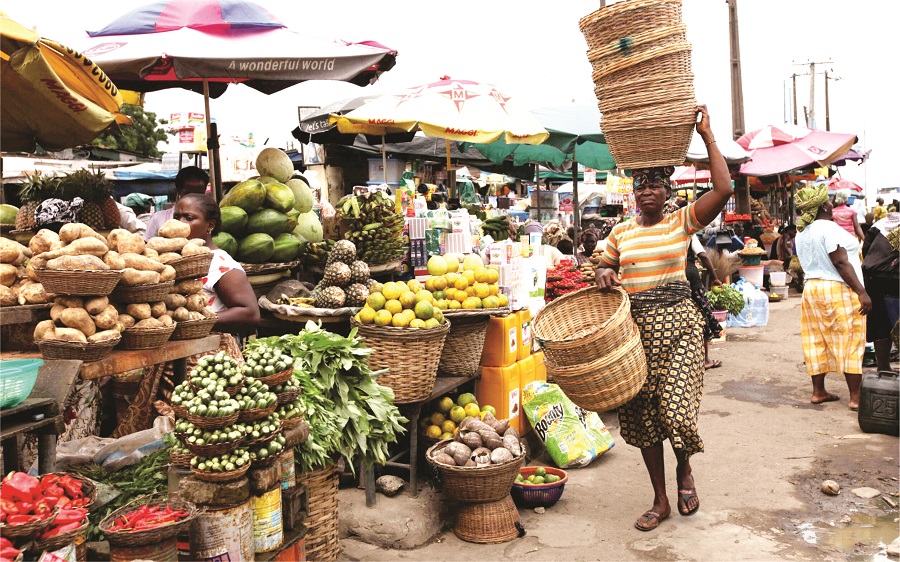Food security is national security
Nigeria, already facing crises from various conflicts and climate change, needs to find ways to limit the impact of global shocks and crises by creating a stable, sustainable food system that can nourish its people and even contribute to the world. In the past, I believed that a solely market-led approach was the best way […]

Nigeria, already facing crises from various conflicts and climate change, needs to find ways to limit the impact of global shocks and crises by creating a stable, sustainable food system that can nourish its people and even contribute to the world. In the past, I believed that a solely market-led approach was the best way to build a strong agricultural and food sector in Nigeria.
However, my work and engagement with local, regional, and global agricultural systems have taught me that it will take a collaborative effort to achieve agricultural productivity and food security.
It is evident that successful agricultural economies are a confluence of factors. The government must set the right policies, regulations, and honour commitments and contracts to enable private sector activity in the agricultural economy in an appropriate manner. Real domestic, local investment by farmers and agribusinesses, backed by other stakeholders and supplemented by foreign direct investment is also critical.
The public sector is essential in driving the agricultural economy, often supported by donors and NGOs, but driven by the state making real efforts to build economic infrastructure that supports farmers and agribusinesses to produce, process and conduct business generally. Investments in roads, access to electricity for power, access to irrigation, access to ports for import of certain types of input, and establishment of trading structures or communications technologies have proven to be transformational, especially for smallholder agriculture.
Several economies across Africa, Asia, and the Americas have gotten it right around the world, and progress, though sometimes slow, compounds over time. It takes everybody working together to achieve agricultural goals.
The US has the most commercial agricultural system in the world, and the USDA and the US government play a significant role in keeping food systems stable. Farmer loans and insurance programmes exist and are backed by the US government, but its private banks that do the lending and come up with the insurance instruments, showing the collaboration between the public and private sectors that fosters agricultural progress.
The US Senate in 2021 introduced Bill 3089, also known as the “Food Security is National Security Act”. The purpose of the bill is to recognise the importance of food and agricultural systems to national security and to establish an interagency council to coordinate federal policies and programmes related to food security and national security.
Therefore, food security is a national security issue. The right strategy is to figure out how public and private sectors can complement each other and how the public sector can help mitigate certain risks that the private sector is not ready to take by providing the right mechanisms and financing structures to do it. This is the kind of public-private sector blueprint needed to create robust food systems that can withstand global shocks and crises.
Africa, not just Nigeria, is still a net food importer, with a projected increase in food imports from $35 billion to $110 billion by 2025. The reasons for this include limited access to inputs and knowledge on efficient, sustainable farming practices, insufficient infrastructure, and disjointed commodity value chains. However, solutions are being sought to address these challenges, with a focus on systemic change and a market-led approach.
Access to finance remains a core challenge in transforming Africa’s and indeed Nigeria’s agriculture sector. The sector is still considered high-risk for commercial lenders, making it difficult for farmers to access finance for inputs and manage cash flow. This often leads to farmers selling to the nearest available buyer, which can result in breaches of contractual agreements and mistrust in the value chain. Public-private partnerships and multi-stakeholder platforms have been explored as key to developing meaningful solutions.
Nigeria requires a focus on demand before supply, with buyers committing to long-term relationships with farmers. This requires a reduction in supply chain risk, which can be achieved through government and private sector collaboration to address constraints in the enabling environment, focused on specific commodity value chains.
A true and effective risk-sharing approach to financing is also required, leveraging partnerships to stimulate commercial lending with public and donor funding used as risk capital. This approach needs to be scaled out much more broadly to better support SMEs in the agribusiness sector.
I also believe Nigeria needs to ensure that food and agricultural systems are recognised as essential components of national security, and that federal policies and programmes are coordinated and effective in addressing the challenges facing these systems.
